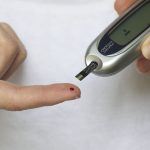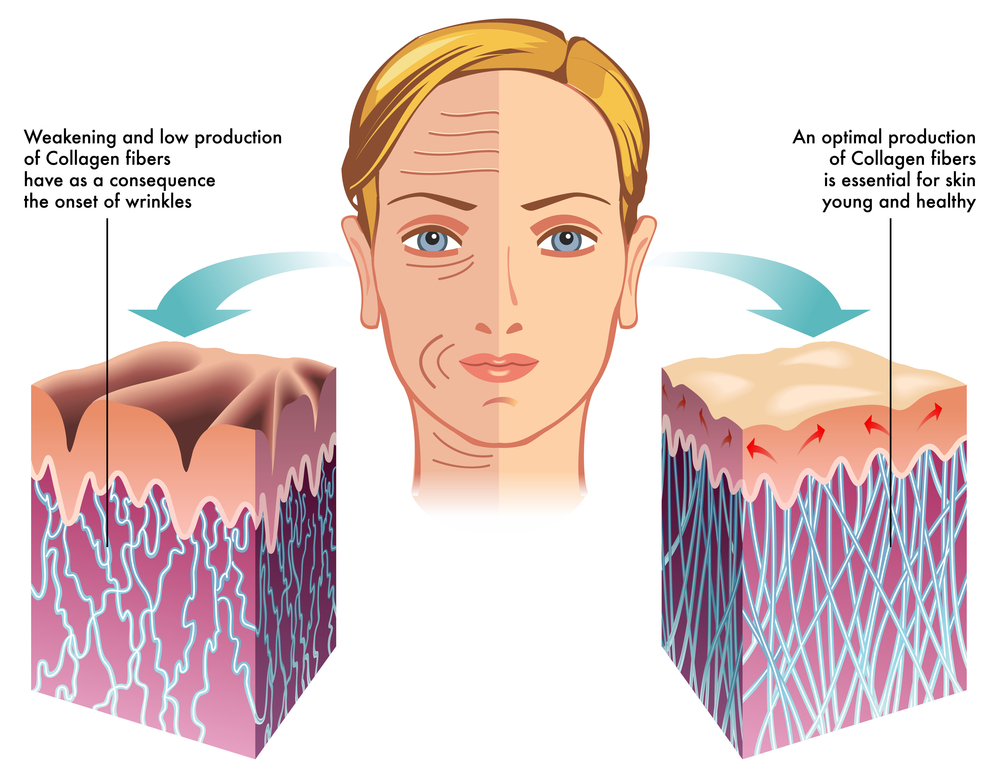As a male 55 or over, you may be asked to take a PSA test during your prostate screening. PSA (prostate-specific antigen) is a substance produced by the prostate gland. It is often a source of medical problems for middle-aged and older men. If you’ve had your prostate-specific antigen (PSA) tested and your numbers were higher, you and your doctor may have discussed ways to lower it. There are also some things you can do on your own that may help.
PSA is a type of protein that’s made by both normal cells in your prostate gland and by cancer cells. It can be found in your blood and semen. Doctors measure PSA in your blood to check for new or returning prostate cancer.
The higher your PSA levels are, the more likely it is that you have active prostate cancer. Some scientific research has found that it’s possible to lower your PSA numbers and reduce risk of developing or returning cancer by making lifestyle changes, like eating certain foods and being more physically active.
The PSA Test is a blood test that measures the amount of prostate-specific antigen (PSA) in your blood. It is used as a means of early detecting prostate cancer and other prostate health problems.
The Significance Of Your PSA
During a prostate checkup, blood tests are taken to screen for PSA levels in men. While it is reasonable to have a small amount in the bloodstream, a rise in PSA can indicate a variety of problems.
2.5 ng/mL is considered safe. 2.6 to 4 ng/mL is safe in most men but talk with your doctor about other risk factors. 4.0 to 10.0 ng/mL is suspicious. Although this is not always the case. Men with high PSAs do not always have prostate cancer, while men with very low PSAs sometimes do have prostate cancer.
The prostate gland increases in size and produces more PSA as you get older. If your PSA test result is high for your age or persistently increasing, a rectal examination and imaging tests may be recommended. In suspicious cases, a prostate biopsy may be recommended.
Why Is It Important To Monitor Your PSA?
Prostate-specific antigens (PSA)s are naturally occurring. Cells within the prostate gland produce PSA, which is typically found in semen, but may be present in trace amounts in the blood as well.
The (PSA) blood test is one of two exams used in the early screening of prostate cancer. Approved by the FDA in 1986, the test was intended to monitor the progression of the disease among those who were already diagnosed, according to the National Cancer Institute (NCI).
Right now Medicare covers yearly PSA screenings for men 50 and older who are Medicare-eligible. Many private insurers likewise cover the test.
While age and genetics both affect PSA levels, lifestyle factors actually play the largest role. That’s why simple changes to health, diet, and exercise routines can naturally bring down PSA levels.
What Does It Mean To Have An Elevated PSA?
According to Cancer.org, a low PSA level is a sign of good prostate and overall health, while a high PSA level is a sign of risk of prostate cancer. As such, a low PSA level is ideal.
Among men who do not have prostate cancer, typical PSA levels under 4 ng/mL of blood, according to the American Cancer Society (ACS). As PSA levels rise, so does the risk for prostate cancer. For those with a PSA level over 10, the chance of having prostate cancer is more than 50 percent.
That being said, heightened levels do not always indicate that cancer is present. There is also no guarantee that PSA levels below 4 ng/mL means there is no prostate cancer.
What Factors Can Impact PSA Level?
Several conditions can lead to an elevated PSA level, not just prostate cancer. As men grow older, many are affected by prostatitis, an inflammation of the prostate, or benign prostatic hyperplasia (BPH), a non-cancerous enlargement of the prostate which causes PSA levels to rise.
Ejaculation, male hormone medications, and some urologic procedures can also lead to an elevated reading. Additionally, PSA levels tend to slowly rise with age, even if there is no abnormality within the prostate. There are several factors that may cause a lowered PSA level as well.
Patients who are overweight, frequently take aspirin, or use certain cholesterol-lowering drugs may see misleadingly low changes in their PSA levels. Similarly, medication for the urinary symptoms of BPH, such as finasteride or dutasteride, may cause misleadingly low PSA levels.
What Causes PSA To Rise?
- Prostatitis (inflammation of the prostate)- An infected prostate (prostatitis) occurs when the prostate becomes inflamed. Areas around the prostate also become swollen and inflamed during prostatitis, which can cause feelings of pain.
- Urinary tract infection-A urinary tract infection (UTI) is an infection caused by bacteria. The bacteria, (usually Escherichia coli) enters into the urinary tract, including the kidneys, ureters, bladder, or urethra.
- Benign prostatic hyperplasia (BPH)– Benign Prostatic Hyperplasia (BPH) occurs when the prostate expands to twice or even three times its regular size. The growing prostate gland presses against the urethra and restricts urinary flow, resulting in lower urinary tract symptoms.
- Prostate cancer-Prostate cancer is one of the most common types of cancer that can affect men; only skin cancer is more common. It is cancer of the prostate gland, which is located between the bladder and the penis. Elevated PSA levels are significantly associated with an increased risk of prostate cancer.
- Recent sexual activity-Studies show that frequent sexual activity or a recent ejaculation can cause a mild rise in PSA. This is why men are advised not to ejaculate for 48 hours before a PSA screening test. It makes a false-positive result.
An elevated PSA count doesn’t always indicate the presence of cancer. However, it is often the first thought men have. If there is something generally wrong with the prostate, a PSA score will reveal the problem.
No man wants to hear they have a high PSA score. It is important to remember that a high PSA score is the result of a problem, not the cause of one.
How To Lower PSA Levels Naturally
There are many ways to reduce your level of PSA and prevent the risk of developing further prostate health issues.
Keep Active
Any form of physical exercise is good for the body. Aerobic exercise helps men lose weight, which can be beneficial for lowering PSA levels. Weight problems contribute to hormone production, which can harm prostate health.
Research has also found that getting three hours of moderate to intense exercise per week is associated with a higher survival rate in men with prostate cancer. However, it should be noted that exercise can cause a temporary spike in your PSA levels, so it should be avoided before a PSA test.
Eat More Tomatoes
Tomatoes have an ingredient called lycopene that’s known to have health benefits. Lycopene is the substance that gives tomatoes their red color. It’s also been found to have antioxidants that might protect against cancer.
A few studies have shown eating lycopene reduces the risk of developing prostate cancer in men with a family history of the disease. More recently, researchers found evidence that eating higher amounts of lycopene can lower PSA levels as well.
You can add more tomatoes into your diet by eating them raw in salads, or by using tomato sauce and adding canned or sundried tomatoes to different recipes. Cooked tomatoes may actually give you more lycopene than raw ones.
Prostate issues will affect more than 50 percent of men during their lifetimes. Super Male Formula contains herbs to support prostate health, including saw palmetto, pygeum, and lycopene. According to strong scientific evidence, these herbs support prostate health.
Choose Healthy Protein Sources
In general, going for lean proteins, like chicken, fish, and soy or other plant-based protein, is better for overall health. These sources of protein help you to maintain a healthy weight and protect against heart disease. They can also benefit your prostate health and lower PSA levels.
Avoid fatty or processed meats and instead choose fish that’s rich in omega-3s and chicken baked or grilled without the skin. Soy, which is used to make tofu and other meat substitutes, contains isoflavones. Researchers believe these nutrients can protect against certain cancers. In fact, there is some evidence that drinking soy milk can actually help to lower PSA levels and slow the progression of prostate cancer.
Take Vitamin D
Vitamin D is made by your body when you spend time in sunlight. It’s also found in fish and eggs and is often added to fortified foods, like cereals. You can take vitamin D as a dietary supplement as well.
Not getting enough vitamin D or having a vitamin D deficiency has been connected to higher risk of having prostate cancer. Other research has found that people with higher levels of vitamin D have lower levels of PSA.
Drink Green Tea
Green tea has been a popular drink in Asia for many generations. It’s become more popular in the United States as people discover its many health benefits.
The tea is full of antioxidants that protect against several cancers, including prostate cancer. Asian countries where men drink large amounts of green tea have some of the lowest prostate cancer rates in the world.
Some studies found the nutrients in green tea were able to protect against prostate cancer and lower PSA levels. Green tea was also studied as a supplement to help slow the rate of growth in men with existing prostate cancer.
Stress
Stress also causes the release of hormones, which contribute to prostate problems. Yoga and meditation are great ways to exercise and relieve stress at the same time. A study followed 93 men who had prostate cancer.
Some of the men followed a primarily vegan diet and exercised regularly. They took part in relaxation methods such as yoga for one hour a day. Their scores on the prostate-specific antigen (PSA) test were much better and were used to follow prostate cancer growth.
Supplements
In today’s fast-paced modern world, it is hard to ensure that you are getting your body’s daily requirements of nutrients and vitamins. If you are always on the go, eating balanced and regular meals can be tricky. With the advancements in the way our food is grown, many of the nutrients we once got are lost.
To help maintain prostate health, you need the right amount of nutrients every day. Certain prostate supplements can help. Vitamin D has been shown to slow down the rise of PSA in men with untreated low-grade prostate cancer. During spring and summer, the rate of PSA increase slows. So make sure you get outside during sunny days or take a vitamin D supplement.
Conclusion
Making these changes to your lifestyle is a simple way to lower PSA levels and help to maintain your prostate health. Talk to your doctor about your prostate cancer risk and any family history of prostate cancer. Also, do your research on the pros and cons of PSA screening and the risk of a prostate biopsy.
Test results can also be affected by things such as recent ejaculation, catheterization, and riding a bike, so make sure to avoid these things if possible, up to 2 days before your test.
It is essential to keep in mind that while a high PSA level can indicate prostate cancer, in many cases, it is caused by another benign condition. However, it depends on how high PSA may be and the baseline of the patient. In any case, every result higher than 10 ng should be carefully assessed.
Although the PSA test is used as a means of prostate cancer diagnosis, many things that can increase your PSA levels, including BPH and prostatitis. So if you do have a high level, don’t always assume the worst.
Eating healthier and getting more exercise is beneficial to your overall health. These are good changes to start and stick to. If you choose to take additional dietary supplements, like vitamins or minerals, make sure to tell your doctor.
It’s possible that these could interfere with other medications you’re taking. Your doctor should also have all your health information in order to make suggestions about next steps in your treatment.









